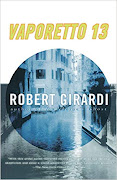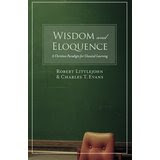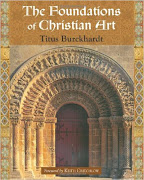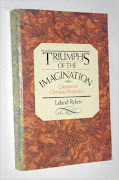I would call Rilke’s poetry, or samples of it, self-conscious psalms. The poet is conscious of the Other but concentrates on himself, frankly praises himself, for that.
Nowhere, Beloved, will the world exist, but within us.
Our lives are constant transformations. The external
grows even smaller...
a Thing once prayed to, worshipped, knelt before –
its true nature seems already to have passed
into the Invisible. Many no longer take it for real,
and do not seize the chance to build it
inwardly, and yet more vividly, with all its pillars and statues.
From the Seventh Duino Elegy
As this poem indicates, and others more so, the invisible God is not so important as what the poet makes of him. It is like charity for how one feels, rather than what it does for someone else. It is a very important quality of David’s Psalms that, when he is self-conscious – aware of his own condition – and expresses it, he changes from looking inward to looking outward, to God. Even when God is difficult to see, such as Psalm 13 expresses,
How long, O Lord? Will you forget me forever?
How long will you hide your face from me?
How long must I wrestle with my thoughts
and every day have sorrow in my heart?
How long will my enemy triumph over me?
Look on me and answer, O Lord my God.
Give light to my eyes, or I will sleep in death;
my enemy will say, “I have overcome him,
and my foes will rejoice when I fall.
But I trust in your unfailing love;
my heart rejoices in your salvation.
I will sing to the Lord,
for he has been good to me.
Or God is hidden, “Why, O Lord, do you stand far off? Why do you hide yourself in times of trouble,” David affirms God’s qualities – His goodness, His judgment, His protection. This is an external God, not determined by the Believer’s belief, but determiner of those beliefs. If David was too self-conscious he would question God’s external existence, which he does not. In fact, he says it is the fool who says “There is no God” (Ps. 14:1). David’s questions to God do not express doubt, but a desire to understand.
It is also important that David does not stop believing because he has questions. I think it is a prevalent belief among those who refuse God that if he is the Christian God he would not have allowed them to come to this point of disbelief. He would have stopped them. It is like someone attempting suicide in hopes someone will care enough to stop him.
Notice, in a number of Psalms, such as number 13 above, David does not necessarily have the answers, but continues to trust God. In other Psalms he answers his questions by affirming what God has done in the past (“for he has been good to me”) and by affirming His law, (Ps. 1:2) “But his delight is in the law of the Lord, and on his law he meditates day and night.”
ZEDS Blog
I enjoy the essays of Dafoe, Addison, and Samuel
Johnson, all of which were published in pamphlets. Pamphlets were in vogue from 1650-1800, providing writers a forum to express views on politics, society, religion, and art. This has been revived in modern times in the form of blogs.
This is now a slight revamp of my blog that started in 2008.
My reading has become a little more specialized, although previous books commented on show I was heading this direction. At this point I will review mainly Christian texts or other texts from a Christian perspective. I intend to post more regularly with book reviews.
I consider reading and writing as part of the spiritual
journey toward maturity and, I hope, wisdom. These are postings of what I’m learning along the way.
Rod Zinkel, August 19, 2015
Sunday, August 1, 2010
Subscribe to:
Posts (Atom)
Calendar
Chapbook: Two Natures
The Neville Museum series has published a chapbook of 15 of my poems. They are of human and spiritual natures. Here are two poems from the book:
Two Natures
On still water of the pond
two natures you may notice--
where scum has been gathering,
there also grows the lotus.
One Way
There's a boy
who stands knee-high
to a July cornstalk.
He stares one way
down the dirt road
his mother has gone.
He find Fortune
has desrted him,
like the poverty-stricken,
society-forbidden parent.
"I can't take care of you," she said.
I am the child who mirrors
his mother's tears without knowing why?
Two Natures
On still water of the pond
two natures you may notice--
where scum has been gathering,
there also grows the lotus.
One Way
There's a boy
who stands knee-high
to a July cornstalk.
He stares one way
down the dirt road
his mother has gone.
He find Fortune
has desrted him,
like the poverty-stricken,
society-forbidden parent.
"I can't take care of you," she said.
I am the child who mirrors
his mother's tears without knowing why?






